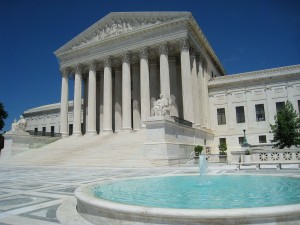Browsing the Intricacies of Federal Appeals: A Comprehensive Guide
In the realm of federal appeals, the elaborate web of legal procedures and subtleties can typically verify to be a labyrinthine difficulty for even one of the most seasoned lawyers. As situations traverse with the appellate procedure, recognizing the details of territory, crafting compelling appellate briefs, and mastering the art of dental disagreements come to be critical. Yet, these are yet a few facets of the complex landscape of federal appeals. Discovering the depths of methods for success on charm requires an eager eye for information and a strategic method that exceeds plain lawful experience. As we start this journey through the complexities of government allures, it becomes evident that a comprehensive overview is not just a useful source yet a necessary compass in navigating the elaborate surface of appellate advocacy.
Federal Appeals Process Overview

The federal allures process usually starts with the declaring of a notice of appeal within a defined duration complying with the access of the lower court's judgment. The applicant, or the event seeking the charm, submits a quick laying out the lawful mistakes they believe happened. The appellee, or the opposing party, then reacts with their own brief, offering counterarguments to support the reduced court's decision. Eventually, the appellate court will release a written viewpoint either attesting, reversing, or remanding the lower court's decision.
Recognizing Appellate Territory
Appellate territory refers to the authority of an appellate court to determine and assess on instances that have been appealed from lower courts. This jurisdiction is restricted to assessing mistakes of law, not re-trying the truths of the case. Understanding appellate territory is vital for both litigants and lawyers navigating the federal allures procedure.
Federal appellate courts have jurisdiction over specific sorts of situations, such as those including federal regulations, constitutional issues, or disagreements in between celebrations from different states. It is important to keep in mind that appellate courts do not hear every charm; they have the discretion to select which instances to accept based upon their standards.
When appealing a choice to a federal appellate court, it is necessary to understand the range of the court's jurisdiction. Understanding the limits of appellate territory can assist attorneys craft a lot more efficient debates and increase the opportunities of an effective allure (federal appeal lawyers). In addition, parties should know the step-by-step regulations and target dates that regulate the appellate procedure to avoid possible mistakes
Crafting Persuasive Appeals Briefs
Establishing a compelling allures brief needs a strategic combination of lawful experience and persuasive interaction skills. An efficient appeals brief is not simply a recitation of realities and legal debates however a carefully crafted record made to persuade the appellate court of the qualities of your instance. To achieve this, it is crucial to start with a clear and concise declaration of the legal issues at hand, complied with by a detailed evaluation of the relevant case legislation and statutes.
Crafting influential appeals briefs additionally calls for an eager understanding of the standard of evaluation suitable to each concern increased on allure. Bear in mind, the objective of an allures short is not just to present your side of the story but to convince the appellate court that the lower court erred in its choice and that your customer is entitled to relief.
Oral Arguments and Court Decorum
Navigating the ins and outs of oral arguments and court decorum requires a nuanced understanding of legal etiquette and efficient communication strategies. When presenting oral disagreements in government allures court, lawyers must adhere to stringent rules of conduct.
Effective interaction throughout oral debates is important for sharing your setting persuasively. Lawyers should be prepared to react to judges' questions attentively and concisely, concentrating on vital legal debates (federal crime lawyer). It is important to stay composed and verbalize, even under pressure. Furthermore, keeping eye get in touch with, talking clearly, and arranging disagreements logically can enhance your presentation.
Courtroom rules and effective communication skills can significantly influence the outcome of appellate situations. By grasping these elements, lawyers can browse oral debates with self-confidence and professionalism and reliability, enhancing their opportunities of success in government appeals court.
Strategies for Success on Appeal
Crafting a tactical and compelling approach is essential for maximizing the possibilities of success in government allures court. One crucial method is to extensively analyze the trial court record to recognize potential errors that could develop the basis of a successful charm.

In addition, when creating appellate briefs, adhering to court regulations and standards is critical. Making certain proper format, precise citations, and a convincing creating style can aid get hold of the attention of the appellate courts and reinforce your setting. By employing these approaches, plaintiffs can boost their potential customers of success in federal appeals court.
Final Thought
Finally, understanding the details of federal charms needs a comprehensive understanding of appellate territory, the ability to craft convincing allures briefs, and expertise of efficient oral debate techniques. By navigating the complexities of the federal charms procedure with precision and ability, one can increase their possibilities of success on appeal. It is important to have a critical approach and be mindful of court rules in order to accomplish a positive end result in government appellate courts.

Comments on “Leading Federal Appeal Attorneys: Your Companions in Browsing the Appeals Refine”